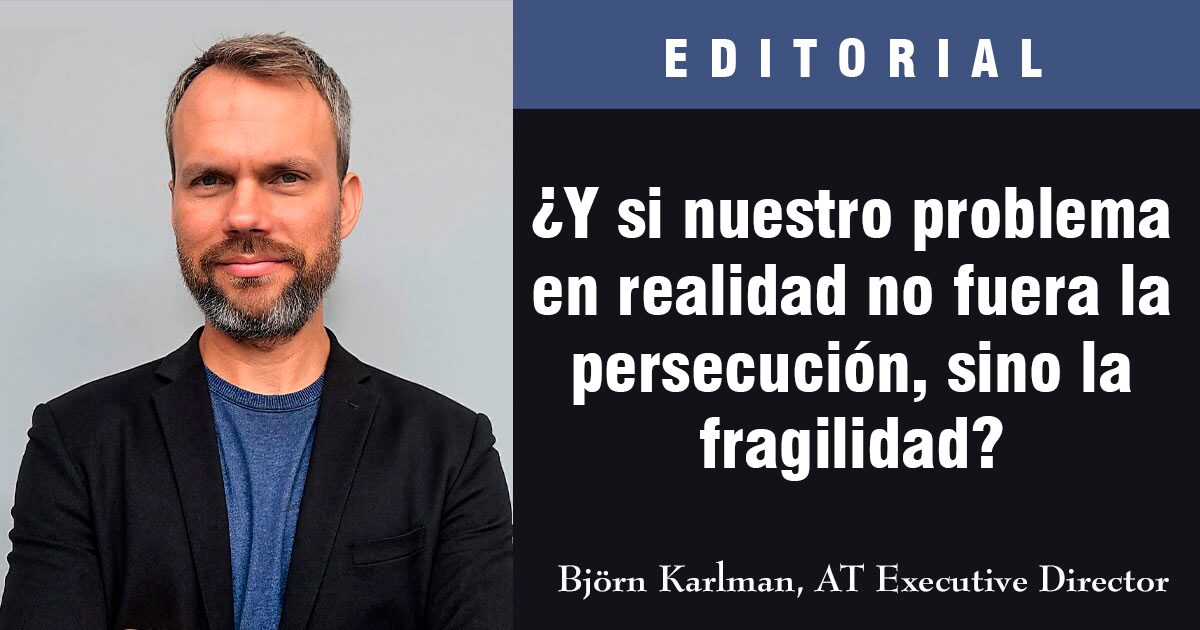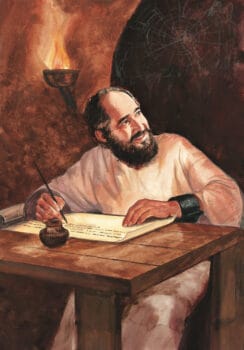20220715 01
20220805 01
Non devi meritare l’amore di Dio #drittoalcuore
Non serve diventare perfetti per essere amati. La grazia è un dono, non un premio da conquistare. Il tuo valore non dipende dai tuoi errori o successi, ma da Chi ti ha creato. #graziadivina #identità #Deuteronomio9 #hopemediaitalia Source: https://www.youtube.com/shorts/TowN9OuDMjQ
¿Y si nuestro problema en realidad no fuera la persecución, sino la fragilidad?

El adventismo sabe cómo prepararse para la persecución. Lo hemos diagramado, predicado, ilustrado para los niños y ensayado durante generaciones. Un día, la presión vendrá desde afuera. Las leyes cambiarán. La fe será puesta a prueba. El remanente se mantendrá firme. Pero, ¿y si esa historia nos ha distraído de una amenaza más silenciosa y […] Source: https://atoday.org/y-si-nuestro-problema-en-realidad-no-fuera-la-persecucion-sino-la-fragilidad/
20220730 03
20220730 02
20220723 01
Monday: Paul’s Prayer Requests
Daily Lesson for Monday 5th of January 2026
Some years ago, there was a pastor who talked about prayers that revolve around me, me, me, and my needs or desires. He aptly characterized them as “selfish little prayers,” because God has bigger things in mind.
Read Paul’s prayer in Philippians 1:9-11. What is its focus, and what big requests does he make? What does it tell you about prayer?
This prayer is only forty-three words in Greek, but it encapsulates all of Paul’s concerns, which he will expand on in the rest of the epistle: love, knowledge, discernment, being sincere, not causing offense, and the righteousness we have through Jesus Christ. Underlying this prayer, as well as Paul’s previous expressions of thanksgiving, is an emphasis on the church as a whole. Paul’s prayer is completely others-focused, on behalf of the whole church and for its well-being. Let’s look more closely at some of the individual elements of the prayer:
Love to abound more and more. Paul doesn’t just pray for more love but for love guided in a specific direction: “in knowledge and all discernment” (Philippians 1:9, NKJV). The reference to knowledge is not to merely intellectual knowledge but implies a knowledge of spiritual things that can be gained only by fellowship with God and study of His Word (see Ephesians 1:17, Ephesians 4:13, 1 Timothy 2:4).
Discernment. This is explained by Paul as being able to “approve what is excellent” (distinguishing it from what is morally harmful) “and so be pure and blameless” (Philippians 1:10, ESV).
Being sincere. The word in Greek means “judged by the sunlight” and refers to an untainted purity of action: “Everything that Christians do should be as transparent as the sunlight.”—Ellen G. White, Reflecting Christ, p. 71.
Not causing offense. This means not being a stumbling block, not saying or doing anything that would make it more difficult for a person to believe.
Righteousness through Christ. Paul dwells at length on this in the epistles of Romans and Galatians and will expand on it also in Philippians 3:1-21. We have no righteousness of our own but only what we receive through Christ.
|
Whatever else we do, how can our love “abound still more and more” (Philippians 1:9, NKJV)? Why is that so important for the Christian life? (See also 1 Corinthians 13:1-8.) |
Are You Willing to be Imprisoned for Jesus?
But I want you to know, brethren, that the things which happened to me have actually turned out for the furtherance of the gospel, Philippians 1:12 NKJV
While no one wants to go to prison, especially if falsely accused of a crime they did not commit, would it be worth it to you to be falsely accused and sentenced to jail if you could lead just one person there to eternal salvation?

Photo by Ye Jinghan on Unsplash
In Philippians, Paul says that his imprisonment actually helped spread the Gospel and encouraged others to be bold in spreading it. Acts 16 also mentions Paul and Silas being imprisoned in Philippi. They were singing songs of praise while the other prisoners were listening. If you were wrongfully imprisoned, would you be singing songs and praising God? I hope so, because something extraordinary happened. An earthquake opened up the prison. Instead of running for it, Paul and Silas ministered to the correctional officer and led him to salvation. You can read this fantastic story in Acts 16:25-34.
Much more recently, the Christian Post, among other Christian news agencies, has shared the testimony of a Chinese woman known as Sister Tong. Chinese officials arrested her for having an underground church in her home. After serving her 6-month sentence, instead of complaining, she was beaming with joy about the women’s ministry she had begun right there in prison. Like Paul, being in prison helped sister Tong spread the Gospel and has inspired others in countries where Christianity is illegal to be bolder in spreading it as well.
When you consider that Jesus left heaven to come to this cold, dark world to live and die to save others eternally, is there any place that is too cold or dark for you to go and save others? Jesus did not complain about coming to this cold, dark world to live and die, but came willingly. See John 10:17-18. Likewise, Paul and Silas were not protesting or pleading their innocence while in prison. They were praising the Lord. What a testimony to the warden and other prisoners! And more recently, instead of complaining about the terrible living conditions in a Chinese prison, Sister Tong beams with joy over being able to lead several women prisoners to Jesus and salvation.
Paul, Silas, and Sister Tong not only endured prison and persecution to save others eternally, but did so joyfully. Is there any place you are unwilling to go joyfully to lead others to eternal salvation?
- « Previous Page
- 1
- …
- 80
- 81
- 82
- 83
- 84
- …
- 4858
- Next Page »


